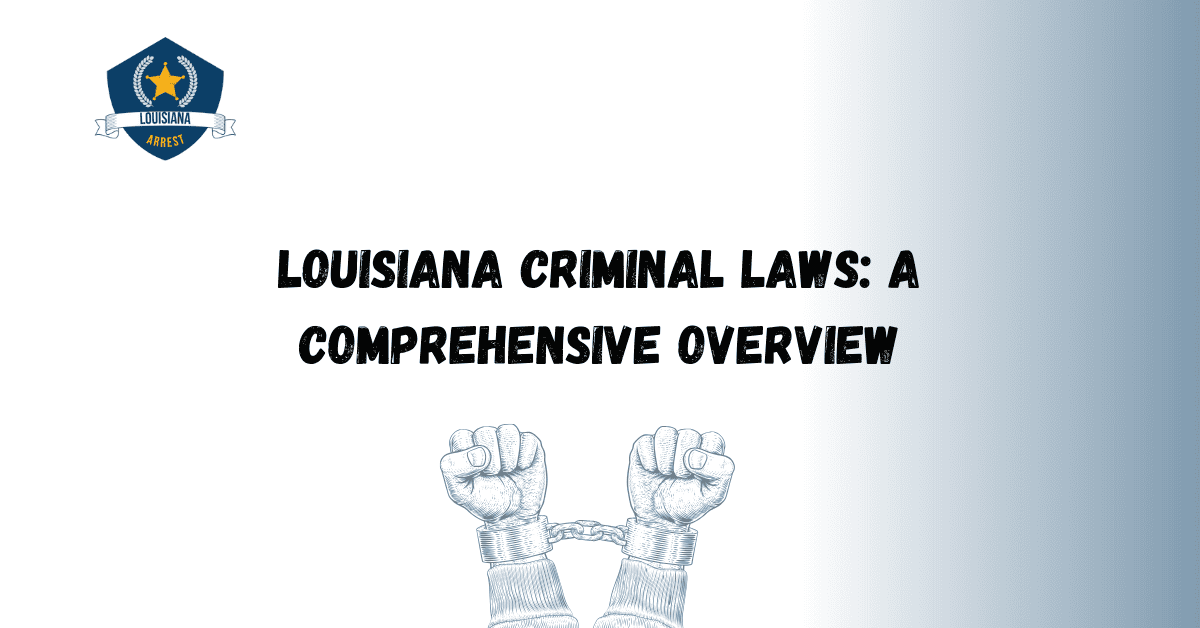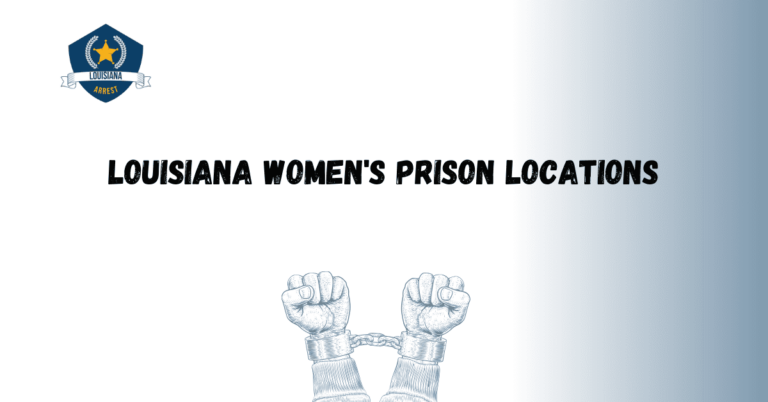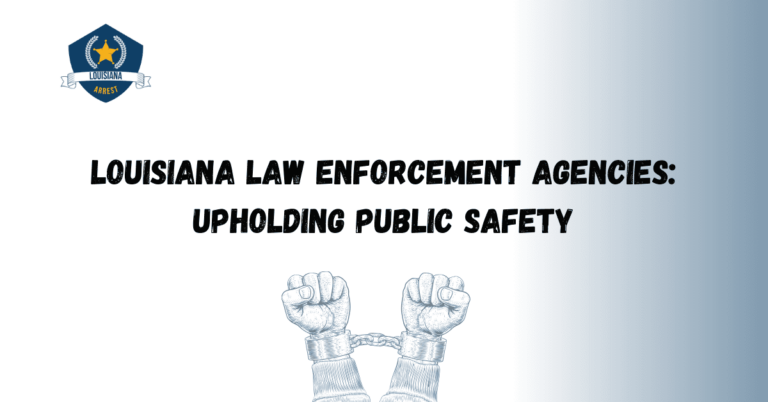Louisiana Criminal Laws: A Comprehensive Overview
Louisiana Criminal Laws A Comprehensive Overview delves into the intricate legal landscape of the vibrant state of Louisiana. Whether you are a law student, legal professional, or simply an individual seeking knowledge about the criminal justice system, this comprehensive guide will equip you with a deep understanding of the laws that govern the Pelican State.
From the bustling streets of New Orleans to the peaceful bayous of Cajun country, Louisiana is a state rich in culture and history. However, like any other state, it has its own unique set of criminal laws that shape the lives of its residents. With this guide, you will explore a wide range of topics, including felony and misdemeanor offenses, sentencing guidelines, and the rights of the accused.
Understanding Felony Offenses in Louisiana
One of the key aspects of the Louisiana criminal justice system is the classification of offenses. Felony offenses, in particular, carry more severe penalties compared to misdemeanor offenses. This section will provide a comprehensive overview of the various felony offenses recognized by Louisiana law.
From crimes against persons, such as assault and homicide, to crimes against property, such as burglary and theft, Louisiana categorizes felony offenses into different classes based on their seriousness. Understanding these classifications is crucial for both legal professionals and individuals seeking knowledge about the criminal justice system.
Each felony offense has its own specific elements that must be proven beyond a reasonable doubt for a conviction. It is important to familiarize yourself with these elements to better understand the charges an individual may face and the potential consequences they may encounter.
Sentencing Guidelines in Louisiana
Once a person is convicted of a felony offense in Louisiana, the next step in the criminal justice process is determining the appropriate sentence. Sentencing guidelines help judges decide the punishment that fits the crime committed and takes into account various factors, such as the severity of the offense and the defendant’s criminal history.
In this section, we will explore the different sentencing options available to judges in Louisiana, including imprisonment, fines, probation, and community service. Understanding the sentencing guidelines is essential for legal professionals and individuals involved in the criminal justice system, as it provides insight into the potential outcomes of a criminal case.
It is important to note that judges have some discretion when it comes to sentencing, and they may consider mitigating factors or impose stricter penalties depending on the circumstances of the case. By delving into the intricacies of Louisiana’s sentencing guidelines, you will gain a deeper understanding of how the criminal justice system operates in the Pelican State.
The Rights of the Accused in Louisiana
Protecting the rights of the accused is a fundamental principle of the American justice system, and Louisiana is no exception. This section will focus on the rights granted to individuals facing criminal charges in Louisiana, ensuring they receive due process and a fair trial.
From the right to legal representation and the right to remain silent, to the right to confront witnesses and the right to a speedy trial, understanding these rights is essential for both defendants and legal professionals. By knowing their rights, individuals can make informed decisions, navigate the legal process more effectively, and ensure that their rights are upheld throughout the criminal proceedings.
Exploring Misdemeanor Offenses in Louisiana
While felony offenses carry more severe penalties, misdemeanor offenses should not be overlooked. This section will shed light on the misdemeanor offenses recognized by Louisiana law and the potential consequences individuals may face if convicted.
Misdemeanor offenses cover a wide range of criminal acts, including simple assault, theft of property under a certain value, and possession of a controlled substance in small quantities. Understanding the distinctions between misdemeanor and felony offenses is crucial for legal professionals and individuals seeking knowledge about the criminal justice system.
In this section, we will delve into the elements of various misdemeanor offenses, the potential penalties individuals may face, and the potential impact on their future, such as employment prospects and the ability to obtain certain licenses or certifications.
Conclusion
Louisiana Criminal Laws A Comprehensive Overview has provided a deep understanding of the intricate legal landscape that governs the Pelican State. From felony and misdemeanor offenses to sentencing guidelines and the rights of the accused, this guide has equipped you with the knowledge necessary to navigate the Louisiana criminal justice system.
Whether you are a law student, legal professional, or simply an individual seeking knowledge, this comprehensive guide has ensured that you have a solid foundation to further explore the complexities of Louisiana’s criminal laws.
FAQs
What does Louisiana Criminal Laws A Comprehensive Overview cover?
Louisiana Criminal Laws A Comprehensive Overview delves into the intricate legal landscape of the vibrant state of Louisiana. Whether you are a law student, legal professional, or simply an individual seeking knowledge about the criminal justice system, this comprehensive guide will equip you with a deep understanding of the laws that govern the Pelican State.
What topics are covered in this guide?
This guide covers a wide range of topics, including felony and misdemeanor offenses, sentencing guidelines, and the rights of the accused.
Who can benefit from this guide?
This guide is beneficial for law students, legal professionals, and individuals who wish to gain knowledge about the criminal justice system in Louisiana.
Why is it important to understand Louisiana’s criminal laws?
Understanding Louisiana’s criminal laws is crucial for anyone living or working in the state. It helps individuals navigate the legal system, ensures compliance with the law, and protects their rights.
Can this guide be used as a reference for legal cases?
While this guide provides a comprehensive overview of Louisiana’s criminal laws, it is always advisable to consult with a qualified attorney for specific legal advice related to a particular case.
Is this guide available in other formats?
This guide is available in various formats, including print and digital versions, to cater to different preferences and accessibility needs.







